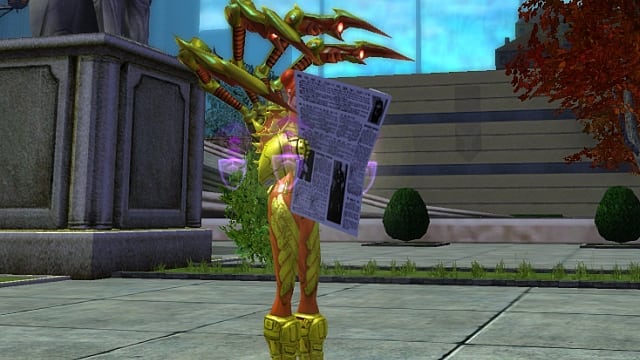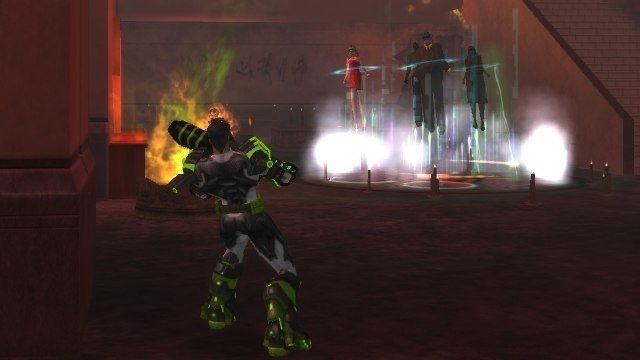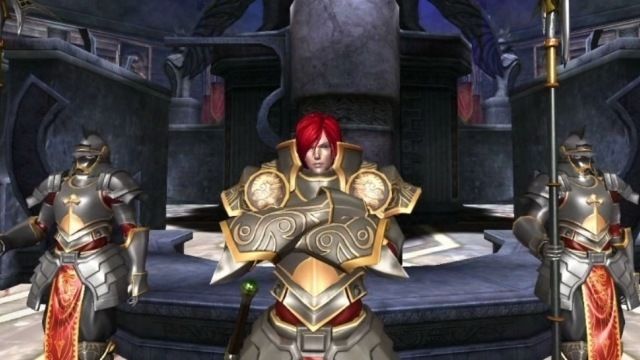Well, obviously not if you can read the headline. Yes, we’re creating a quick drag-and-drop set of application questions so that you can create an application (or the basics of one) in short order, with the option to expand upon various components of that application as your preference and needs dictate.
Due to the nature of this template, the format is going to be slightly different. Rather than having commentary interspersed with the template itself, the commentary and explanation will come after the core template. Without further ado, let’s get on with it.
Guild Application Template
Personal Information:
What is your real name?How old are you?What is your [CHARACTER NAME/SCREEN NAME]?
What attracted you to this group in the first place?
Do you know any existing members?
Do you have any other [GUILDS/GROUPS] that you belong to within the context of this game?
Play Information:
How many hours do you spend playing per week?
What times are you most active?
What roles are you most comfortable playing?
What sort of attitude are you most comfortable with in a group environment?
Which would you say is more important in play - having fun or playing well? Why?
What sort of events interest you the most?
Other Information:
What are your feelings regarding cheating?
Why did you leave your last group in the game (if applicable)?
How willing are you to be contacted out of the game if necessary?
What other games do you play online?
End Template, Begin Discussion
What is your real name / How old are you / What is your [CHARACTER NAME/SCREEN NAME]?
The last question is obviously just for identification purposes within the game, but the first two are important to establish that you’re dealing with a person rather than an anonymous face on the other side of the screen and to get a general gauge of what is and is not appropriate conduct within the guild. They can be left optional if you want; my experience has been that people tend to form closer bonds when guildmates know one another’s names in passing, but it’s understandable if someone feels uncomfortable doing so.
What attracted you to this group in the first place?
Fairly straightforward - it’s good to know why someone wants to join your group, even if it’s just for the purpose of knowing right away that their desire for high-level competitive League of Legends play is at odds with your group’s stated goal of goofing around for fun.
Do you know any existing members?
A simple question to establish existing connections, as well as knowing who to ask about the prospective member.
Do you have any other [GUILDS/GROUPS] that you belong to within the context of this game?
Again, a simple question - you want to know if the applicant wants to make this group a top priority or just a side project.
How many hours do you spend playing per week / What times are you most active?
This is relevant for the simple reason that someone who matches your group philosophy perfectly but is never around when everyone else can play is going to be bored, unhappy, and probably quick to leave. It’s also important to note whether or not you want someone in your guild if they have a very light footprint in the game.
What roles are you most comfortable playing?
MMORPGs tend to have classes and roles for players to fill - tanks, healers, DPS. MOBAs have your junglers, your carries, and so forth. Competitive shooters have different weapon archetypes. There are always different options, and this gives you an idea about what this person likes to be. This can be very relevant if you want to take on big group content but you perpetually have applicants who all want to fill the same role.
What sort of attitude are you most comfortable with in a group environment?
Here’s the trick - a lot of applications will ask what skills the applicant will bring to the guild. And that’s a useless question for the same reason that no one, ever, has actually accurately informed a prospective employer about what they can bring to the team. We are our own worst critics at time, but we are also the people with the greatest interest in seeing ourselves succeed.
Asking about what the applicant cares about, attitude-wise, will tell you a lot about who the applicant is without asking them for self-evaluation. If the player in question rails against elitists telling him how to play his character, you can make some realistic judgements. It’s the sort of question that can reveal a lot about the applicant whether they mean to or not.
Which would you say is more important in play - having fun or playing well? Why?
Like the former question, this is sort of a veiled attempt at getting real information, but it’s still very useful information. If it comes down to either having fun or getting things done efficiently, which one will this applicant choose? Almost no one will say “I’m a perfectionist with a short fuse,” but they might go on a rant about people playing in sub-par fashions and holding the group back. Similarly, no one will say “I’m not very good and don’t want to practice,” but they may very well talk about how much fun is important and how they’ll trade failures for character preferences if necessary.
What sort of events interest you the most?
Much like asking about what attracted the applicant, this is a way of finding out what the player in question really wants out of the group. For one thing, this shows what sort of events are going to be attended by this player and which ones will be forgotten; for another, it gives you a picture of what the applicant expects the group to be like.
What are your feelings regarding cheating?
Cheating is more than just breaking the rules - it becomes a question of whether or not breaking the rules (or breaking them for the right reasons) is acceptable. It ties in a bit to the attitude questions above, but it also gives you an idea of what to expect from the player in question. If they say outright that using a known exploit is fine so long as everyone else is doing it, you might want to be leery of the applicant and what their presence might mean for your group down the line.
Why did you leave your last group in the game (if applicable)?
When applicable, this can produce some interesting and useful information about whether or not bridges were burned and what sort of player you’re dealing with. If they left the last group because of a disagreement in leadership, that makes sense. If they left because “they were all real jerks,” that raises a few flags. (Unless, of course, you know the last group and they really are all jerks. Those groups exist.)
How willing are you to be contacted out of the game if necessary?
Primarily, this matters for the sake of guild continuity. If everyone in your guild is willing to be called about missed events except for one member, that one member is almost inevitably going to be the one who misses events, and they’re going to feel left out. If no one wants out-of-game contact, that’s fine; if half do and half don’t, you want a compromise. But you don’t want someone with a more standoffish attitude joining a very open guild, or vice-versa.
What other games do you play online?
This final question has two purposes. First, it gives you a sense of the person in question if they have at least one other game on the list. An applicant to your World of Warcraft guild who also plays three other MMORPGs is going to be a very different sort of person from the applicant who also plays Team Fortress 2 and not much else online.
Secondly, it also gives you a more well-rounded picture of player availability. If a player isn’t able to stick around for extended play periods due to obligations elsewhere, that’s fine, but it does factor into your decision. It’s unrealistic to expect anyone to have complete and unwavering devotion to a single game at all times, but you do have to consider the other things on someone’s plate and ask if that’s something you want the guild to deal with.
Obviously, there are more questions to ask - no application for a roleplaying guild would be complete without information about your character, after all. But this should serve as a good template to use as a basis, so you don’t have to wrack your brains thinking about how to ask these very questions.





